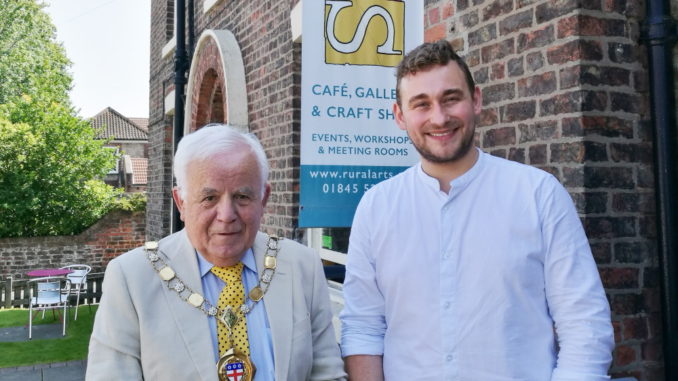
Thirsk-based arts charity Rural Arts has launched a new project to reduce loneliness and isolation caused by the coronavirus pandemic.
Through 11 artistic commissions delivered across North Yorkshire, Rural Arts will provide creative experiences and opportunities to over 700 people, increasing their wellbeing and connecting them to a sense of community.
Seven local visual arts practitioners have each been commissioned to create a unique participatory experience to reach 50 people in one of North Yorkshire’s seven districts. Commissions include craft packs, a community quilt and a stay-at-home exhibition.
Four performing arts commissions – including audio plays, a virtual dance experience and a specially composed song – will explore loneliness and community from diverse perspectives.
As well as supporting local communities and developing individual creativity, the commissions invest in community-based, unfunded and underrepresented artists.
“Artists from these groups face heightened difficulties securing work during the pandemic.
“We’re so pleased to be bringing creativity to the heart of communities across North Yorkshire, and particularly to people who’ve faced additional challenges due to the pandemic”, said Rural Arts’ director and CEO Max May.
“Since the first lockdown began, we’ve reached over 45,000 people through 300 different activities – and we’ll keep working hard to support everyone in the county to access culture and creativity, whether that’s online, via the post or in-person, once it’s safe to do so.”
Rural Arts will work with a range of partners to reach some of the county’s most isolated people.
Each commission has been specifically designed to be enjoyed without physical interaction with others and will be available in a range of accessible and offline formats.
Keepsake is funded by Arts Council England, thanks to support from the Department for Digital, Culture, Media and Sport.


Be the first to comment